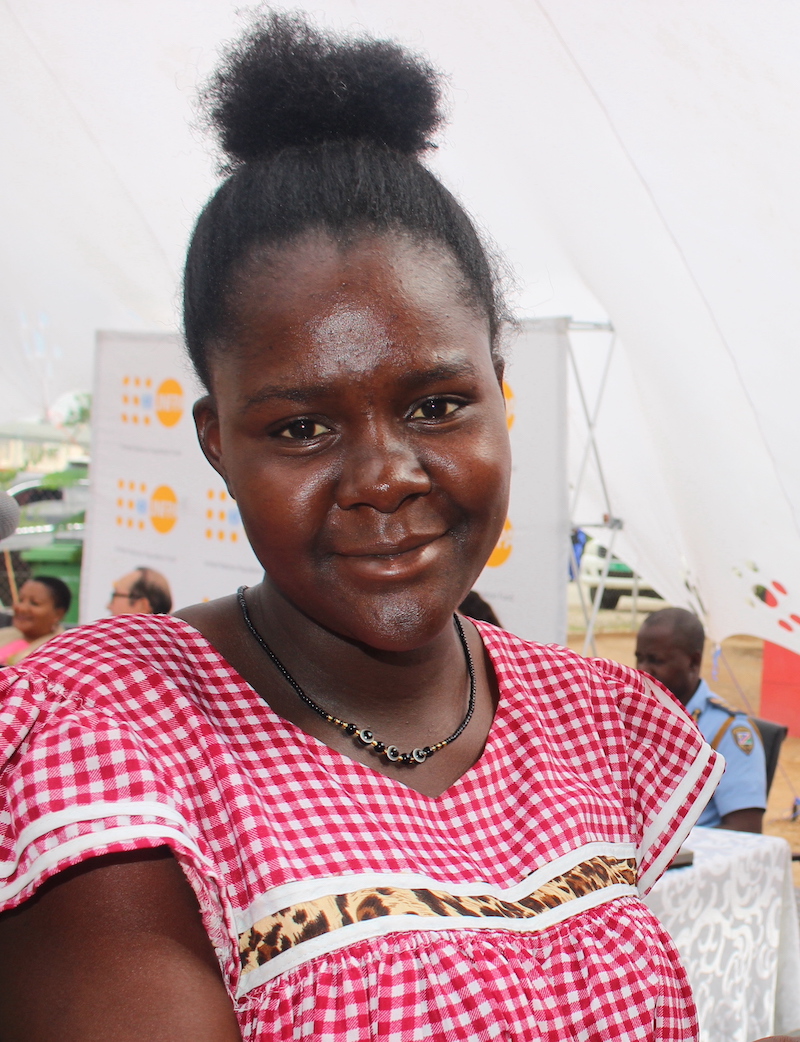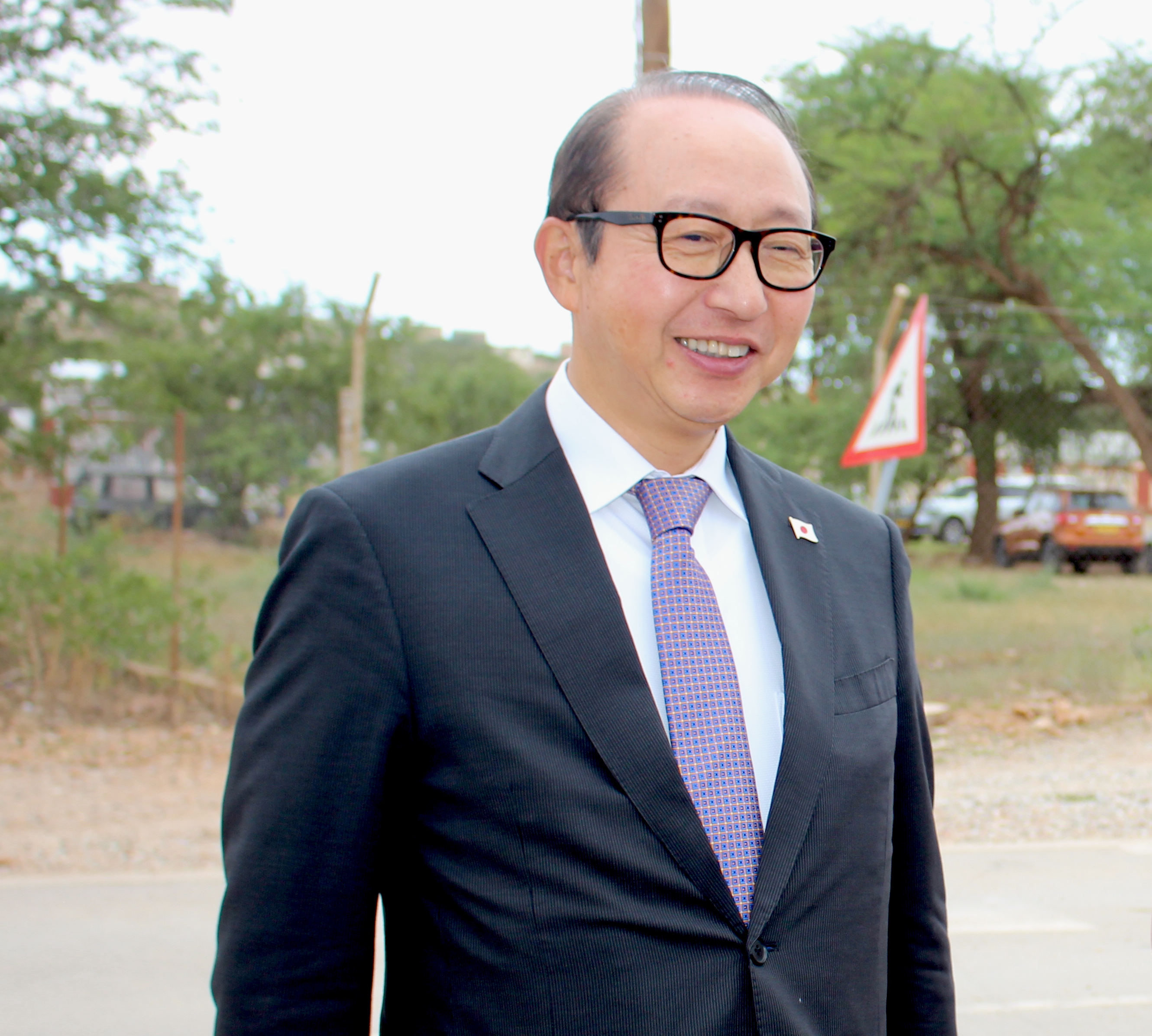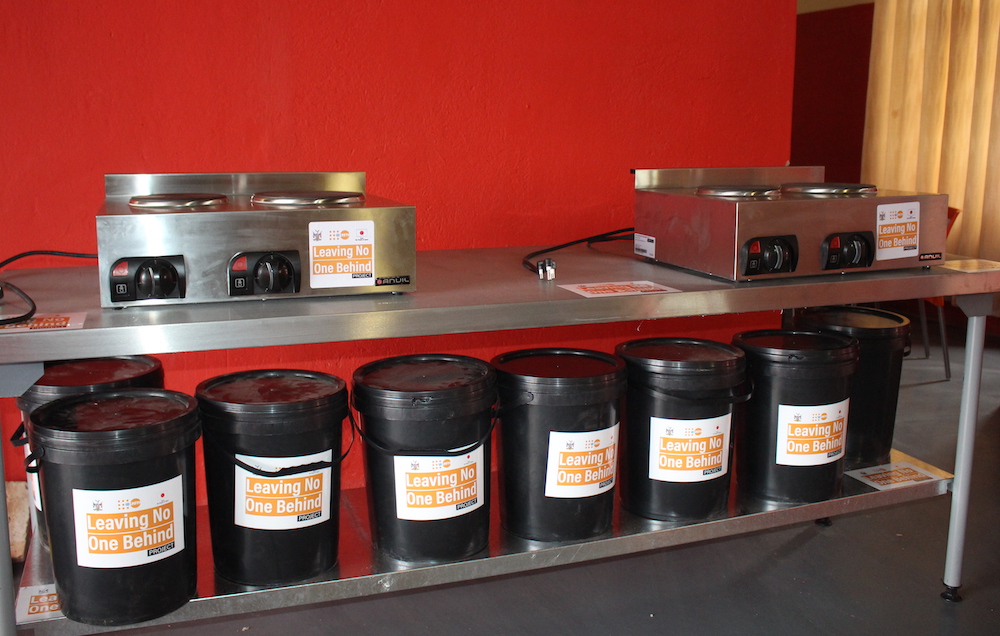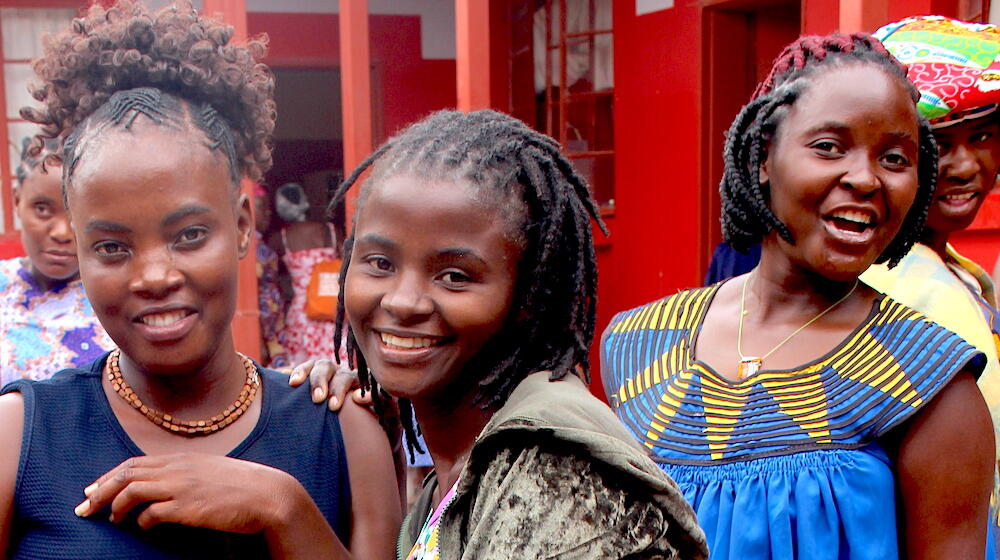OPUWO, Kunene Region—Expecting her first child this month, Karikikuta van der Merve, 18, found herself in a predicament. Her tender age placed her at a higher risk of complications during childbirth. She needed to be close to medical assistance, yet her village, Ehomba, is situated far from the nearest hospital.

This is significant for the young mother-to-be, because if she gives birth in hospital, she has a far lower chance of death or injury, such as an obstetric fistula. Hospitals are equipped to keep women safe while giving birth. They offer trained medical professionals, advanced medical technologies, and emergency equipment that can address any potential complications.
The region Ms. Van der Merve hails from has Namibia’s lowest rate of hospital deliveries, a trend that puts mothers’ lives at risk. Poor roads, lack of transportation and long distances to the nearest hospital make it difficult for rural pregnant women to reach help in time to give birth safely. As an anxious mum-to-be, she needs to be assured of the medical support she will need.
For countless women and teenage mothers like her, maternity waiting shelters located close to hospitals represent a haven of hope. As her time to deliver approached, Ms. Van der Merve was housed at Kazetjitindire Angelika Muharukhua Maternity Waiting Home in Opuwo.
The Kunene region is blessed to have this maternity waiting house. It has kept so many pregnant women safe.
“The Kunene region is blessed to have this maternity waiting house. It has kept so many pregnant women safe,” said Ms. van der Merve.
Built in 2013 to enable expectant mothers to be near the town’s District Hospital, the dormitory houses up to 60 women and offers a shared kitchen, dining room, bathroom and meeting room.
But when Ms. van der Merve arrived, the facility lacked important equipment. This matter was resolved with the donation of new furniture and kitchenware to the shelter, which has been welcomed by the pregnant women.
“We didn’t have enough chairs and tables, and we would eat sitting on the ground or on our beds. Now we will be more comfortable while we are staying here,” Ms. van der Merve said.

The donated items included a refrigerator, two industrial stoves, eight dining tables, chairs, a stainless-steel table, drinking jars, blankets, treated mosquito nets and two sewing machines. In addition, the 55 pregnant women housed at the home each received a dignity kit, cans of fish, maize meal and a bottle of cooking oil. Each dignity kit contained essential items enabling the women to maintain their hygiene and dignity – Vaseline, toothpaste, toothbrush, face cloth, washing powder, bath soap, sanitary pads, underwear, a malong (wraparound fabric) and a torch.
This donation was made possible by the Leaving No One Behind Project, implemented by UNFPA in eight regions of Namibia, including Omaheke, with funding from the Government of Japan.
“We would like to secure the pregnant women by delivering basic items and nutritional food so that we can strengthen the dignity and confidence of pregnant women in Namibia,” said the Ambassador of Japan to Namibia, Hisao Nishimaki.
At the 8th Tokyo International Conference on African Development (TICAD8) last year, Japan committed to bolstering African Countries' health care and medical systems, to achieve Universal Health Coverage and to support sexual and reproductive health, to ensure every pregnancy and delivery is safe.
Expectant mothers using the services of waiting homes is critical, not only for service delivery but also for promoting pregnancy outcomes.
Namibia’s Deputy Minister of Health, Dr. Esther Muinjangue, encouraged expectant mothers to use the services of waiting homes. “This is critical, not only for service delivery but also for promoting pregnancy outcomes,” she said.

The Leaving No One Behind Project focuses on those most left behind, such as vulnerable women and girls, particularly those who live with disabilities, as well as pregnant and nursing women, in- and out-of-school youth, and other groups susceptible to sexual and gender-based violence. It serves as an emergency response intervention in the context of COVID-19.
The proximity of the maternity waiting home to the hospital facilitates timely interventions when complications of pregnancy and delivery occur.
Maternal deaths and gender-based violence are not only human rights concerns. They are essential to the achievement of national priorities and the Sustainable Development Goals, according to Gift Malunga, UNFPA Representative a.i. for Namibia. “Maternal mortality is at 210 deaths per 100,000 live births. We all know that most of these deaths are preventable,” she said. “The proximity of the maternity waiting home to the hospital facilitates timely interventions when complications of pregnancy and delivery occur.”
In Namibia, pregnant women need assistance with increasing their sense of self-worth and confidence, lessening their susceptibility to risks related to gender-based violence and sexual and reproductive health, and enabling them to meet their basic needs, while acquiring long-term livelihood skills that will increase family income and overall well-being, she said.
Namibia’s high rate of teen pregnancy
Kunene has the second highest rate of teenage pregnancies in Namibia, at 23 per cent. Teenage pregnancies have negative consequences for the individual, families and society. Teen mothers often face social stigma, economic hardships, limited educational opportunities, and reduced job prospects. They may also experience physical and mental health problems due to the strain of pregnancy and childbirth at a young age.
Children born to teenage mothers are more likely to experience negative outcomes, such as low birth weight, developmental delays and poorer academic performance. These challenges can perpetuate a cycle of poverty, limiting opportunities for the next generation.
High teenage pregnancy rates put a strain on public resources, including health-care systems and social welfare programmes. Preventing teen pregnancy through comprehensive sex education, access to contraception, and social support can improve outcomes for teen parents and their children.



